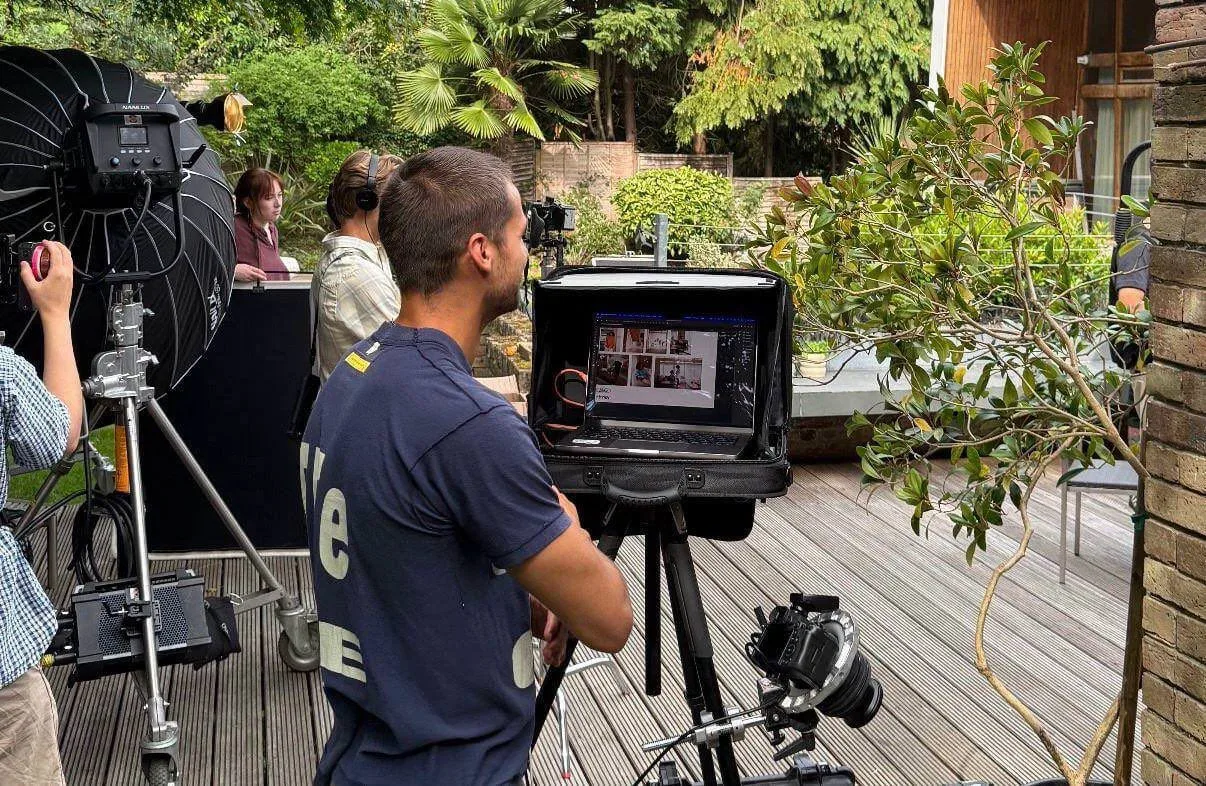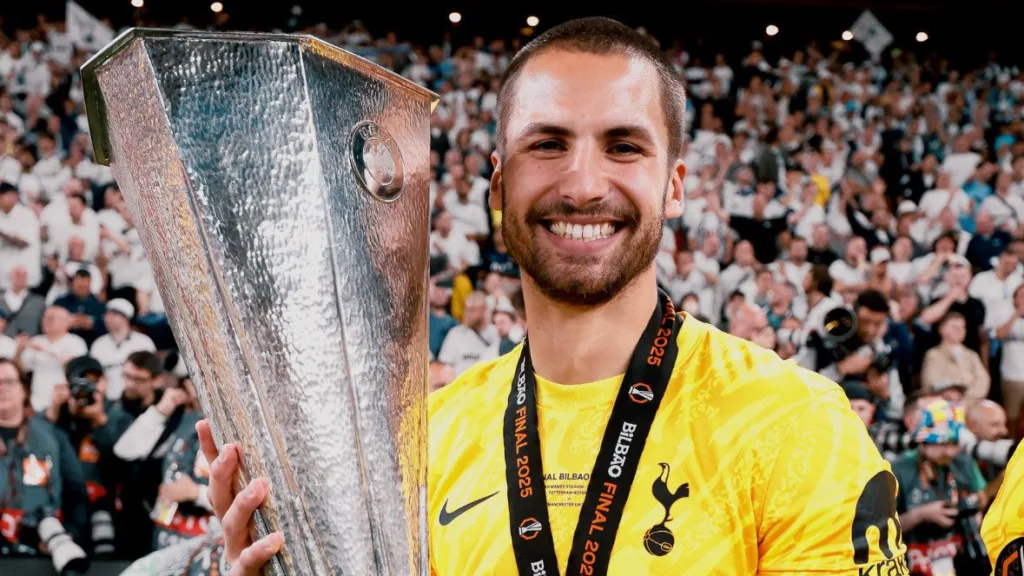Former Tottenham Hotspur goalkeeper Alfie Whiteman has officially announced his retirement from professional football at the age of 27, choosing to pursue a full-time career in photography and film after nearly two decades in the sport.
This decision marks the end of a formative chapter for a player who joined the Spurs academy at age ten and departs the pitch with a unique story, one that blends sport, creative ambition and personal fulfilment.
Whiteman’s journey began in North London, joining Tottenham’s youth setup from a young age, and eventually signing his first professional terms with the club. His senior debut came on 26 November 2020, when he replaced Joe Hart in the 82nd minute of a Europa League fixture against Ludogorets Razgrad.
He also spent two loan spells in Sweden with Degerfors IF in 2021 and 2022 where he accumulated 34 appearances in the Allsvenskan.
Despite being part of the Tottenham squad that won the 2024–25 UEFA Europa League, Whiteman saw minimal playing time and faced increasing reflection about his future in the sport. In his own words, he admitted:
“Football is a short career regardless, even if you do really well, and I knew that I didn’t want to stay in it. I signed for Spurs at 10 years old. Then I left school at 16 and went straight into this full-time life of football. When I was around 17 or 18, I just had this feeling inside of, ‘Is this it?’,” he said.

These sentiments reflect a player who, despite progressing through a top-level academy and achieving a European medal, felt unfulfilled by the narrow pathway of professional football and was increasingly drawn to creative interests off the pitch.
The turning point arrived during his time in Sweden. While on loan at Degerfors, Whiteman experienced first-team football regularly and simultaneously began exploring other facets of life: photography, film, DJing and cultural production.
After his contract with Tottenham expired in mid-2025 and the club confirmed his departure alongside other players, he opted not to pursue further football opportunities — even though offers from EFL clubs reportedly existed — and instead redirected his energies entirely into his new vocation.
In his announcement, Whiteman emphasised the importance of agency and identity beyond sport: “It was about trying to gain experience and be proactive in learning about these things I was also interested in, but mainly because I was enjoying it, and was surrounded by the kinds of people that were doing what I enjoyed as a job.”
Now he is working with the London-based production company Somesuch and is strong in his resolve to pursue photography and filmmaking as his principal career.
Whiteman’s legacy in football may not be defined by match statistics or a lengthy first-team career. According to his own reflection he said: “I think that’s when I realised the football bubble, because it’s so insular.”
His journey underscores an alternative narrative: that success can mean defining one’s own path, and that personal satisfaction and creative fulfilment can be as meaningful as sporting accolades. Within the Tottenham dressing room, he served as a dependable squad member, a home-grown player who combined professionalism with broader interests.
In press remarks he reflected on his time at the club: “Even being the third and travelling keeper for a while in previous years, I’ve been very lucky to have that exposure to such top professionals.”

